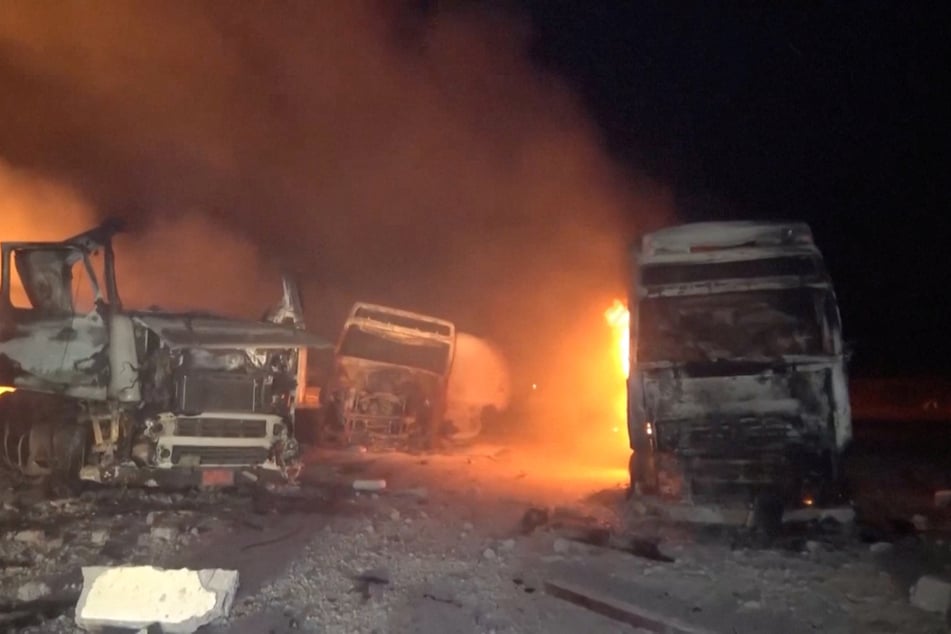US bombs fuel port and kills dozens of people in deadliest attack on Yemen yet
Hodeida, Yemen - Massive US strikes on a Yemeni fuel port killed at least 58 people, the Houthi movement said Friday, in the deadliest attack yet on the impoverished country.

The strikes also injured more than 100 people, according to a Houthi-run network that broadcast footage of large blazes lighting up the night sky.
The US military said its attack on the Ras Issa fuel terminal on the Red Sea aimed to cut off a source of supplies and funds for the Houthis, who control large swathes of Yemen.
"The death toll... has risen to 58 martyrs and 126 wounded," the Hothis' Al-Masirah TV said, quoting health authorities in rebel-held Hodeida, about 30 miles southeast of the terminal.
In images broadcast early Friday by Al-Masirah, a fireball was seen igniting off the coast as thick columns of smoke rose above what appeared to be an ongoing blaze. The Houthi TV station later screened interviews with survivors lying on stretchers, including one man with burns on his arms.
"We ran away. The strikes came one after the other, then everything was on fire," one man who said he worked at the port told Al-Masirah.
There were also reports emergency responders were killed in the horrific attack.
US keeps up brutal attacks on Yemen
The US military has hammered Yemen with near-daily airstrikes in a bid to crush Houthi attacks on Red Sea shipping, carried out in solidarity with Palestinians being massacred en masse by Israel in Gaza.
The Houthis have vowed to stop their assaults if the destruction of Gaza ends, and they kept their word during a weeks-long ceasefire that Israel eventually broke unilaterally.
The attacks under President Donald Trump began with a series of strikes on March 15 that left 53 people dead, many of them civilians.
In a statement, US Central Command (CENTCOM) said: "US forces took action to eliminate this source of fuel for the Iran-backed Houthi terrorists and deprive them of illegal revenue that has funded Houthi efforts to terrorize the entire region for over 10 years."
Cover photo: via REUTERS
